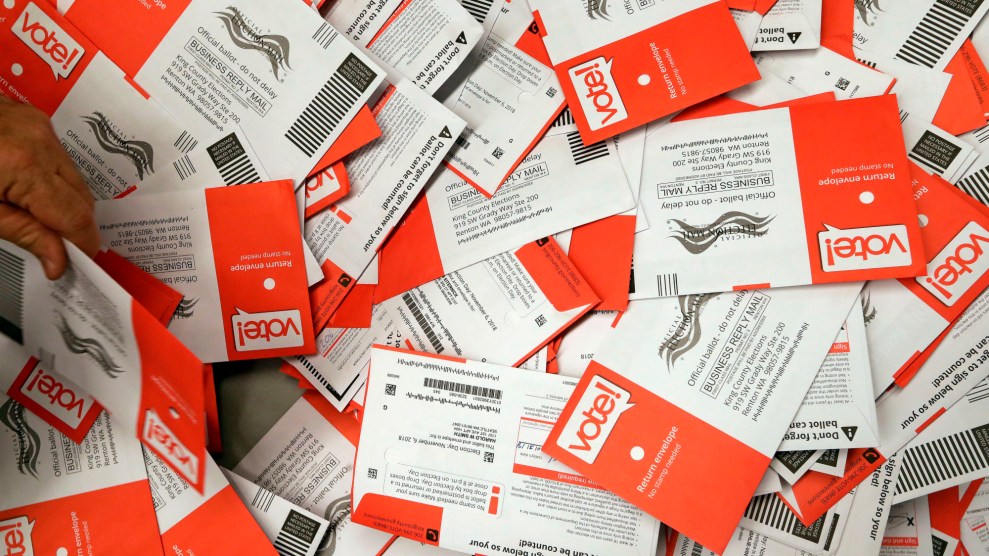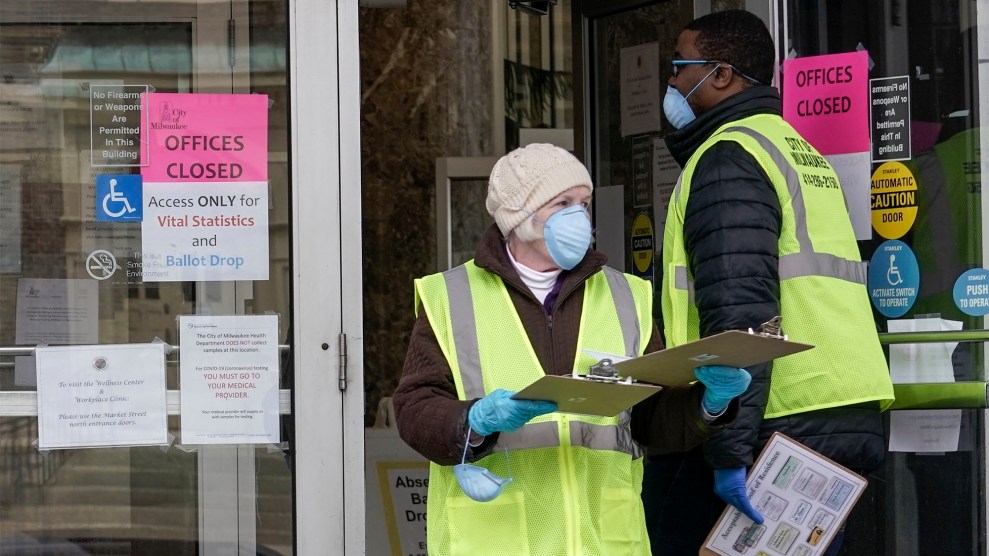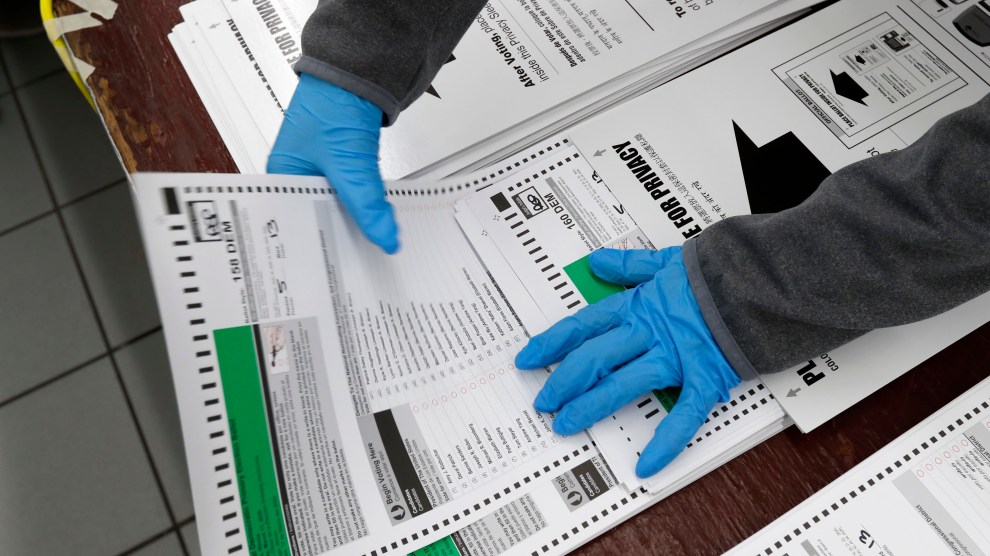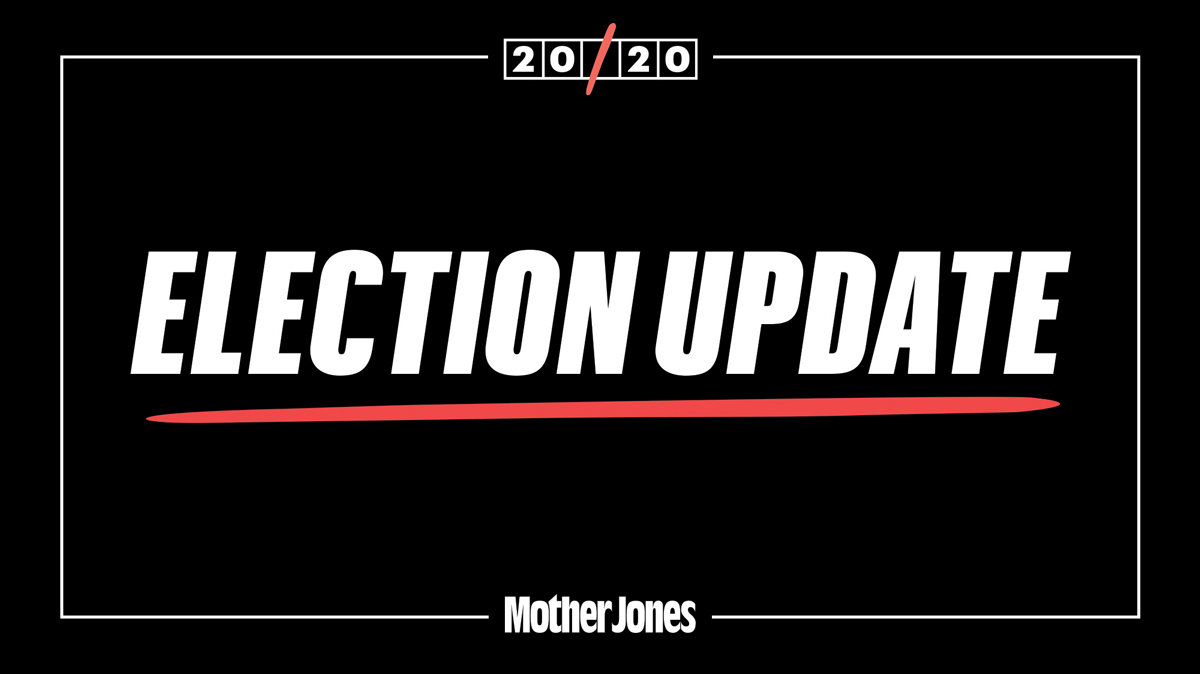
Across the country, state and federal officials are grappling with the issue of voting amid the coronavirus pandemic.Elaine Thompson/AP
Any Texan worried that voting in person may put their health at risk because of the coronavirus can vote by mail during the next election, a state district judge ruled on Wednesday.
The Travis County District Court ruling on the lawsuit, filed by Texas Democrats in late March, temporarily suspends the rules that typically only allow the elderly, disabled, and incarcerated to vote by mail. According to the court, anyone concerned about contracting the coronavirus while voting in person can claim the “disability” exception to vote-by-mail requirements. Runoff elections, including for Sen. John Cornyn’s challenger, originally scheduled for May, have been moved to July.
Texas Attorney General Ken Paxton responded to the ruling with a letter to the state’s House Election Committee, arguing that “fear of contracting COVID-19 unaccompanied by a qualifying sickness or physical condition does not constitute a disability.” He also suggested that “third parties” who “advise voters to apply for a mail-in ballot” due to coronavirus concerns could be criminally charged.
The battle to determine how voting should happen amid locked-down states isn’t limited to Texas. Across the country, state lawmakers are scrambling to reconcile in-person voting with social distancing and, of course, the party line. President Donald Trump is a vocal critic of mail-in voting, claiming that it introduces high risk of voter fraud, and “for whatever reason, doesn’t work out well for Republicans.” Just last week, the Supreme Court ruled against expanding vote-by-mail in Wisconsin on the eve of the state’s primaries. The court’s decision, authored by Justice Brett Kavanaugh, sided with protecting the state from potential voter fraud, but included one notable caveat: “The Court’s decision on the narrow question before the Court should not be viewed as expressing an opinion on the broader question of whether to hold the election, or whether other reforms or modifications in election procedures in light of COVID–19 are appropriate. That point cannot be stressed enough.”














